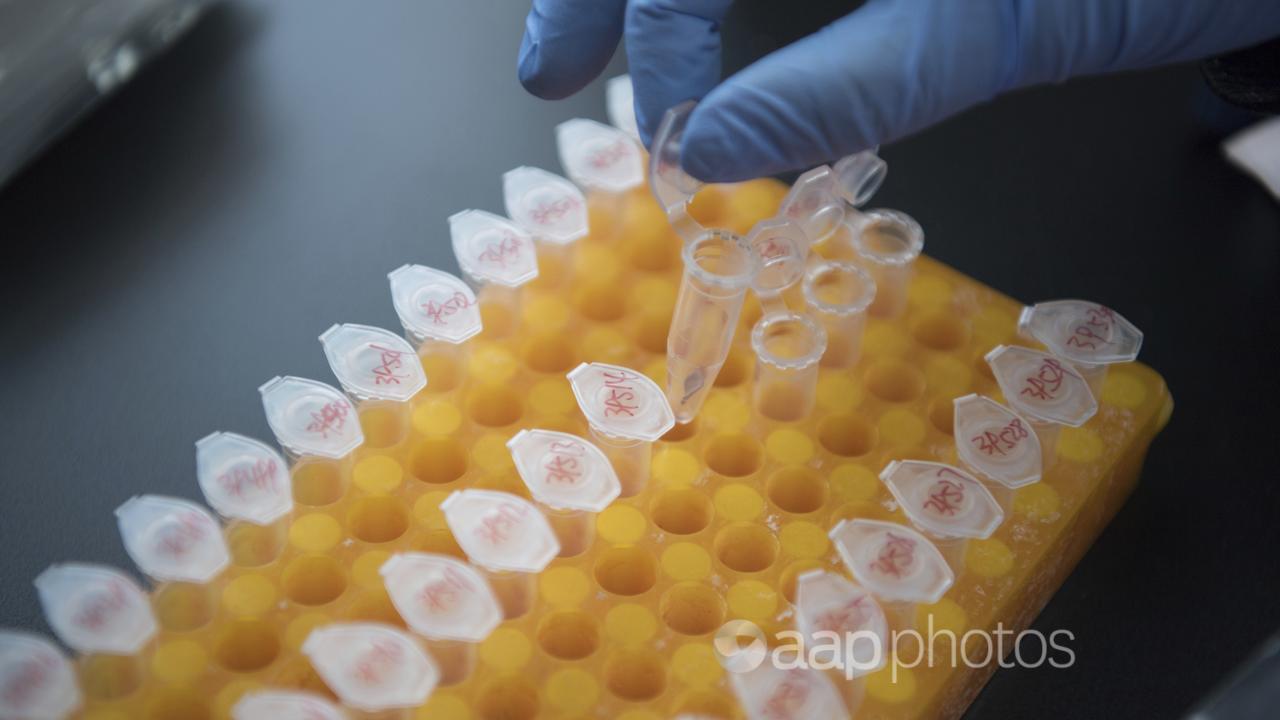AAP FACTCHECK – Social media users are falsely claiming that a new bill that aims to change gene technology regulations in New Zealand is being fast-tracked and will bypass people’s right to refuse medical treatment.
Experts say the Gene Technology Bill is not being fast-tracked and is subject to the standard parliamentary process.
It also doesn’t trump people’s right to refuse medicines, which is enshrined in the country’s Bill of Rights Act.
Gene technology refers to a range of ways to make changes to genes, which can be used in areas such as medical research and agriculture.
The government says the bill aims to modernise gene technology regulations, while also “ensuring strong protections for the health and safety of people and the environment”.

A Facebook post claims the bill gives ministers provisions for “mandatory medical activity authorisations” and will give ministers the power to undertake “emergency authorisations”.
“These clauses bypass the medical choice provisions of the NZ Bill of Rights… It empowers the Minister to make health decisions affecting all Kiwis on the say-so of foreign gene regulators of his choice,” the post asserts.
It later suggests this raised “the prospect of government reimposition of medical mandates” and people will be “unable to exercise medical autonomy”.
The post also claims the bill is being passed in a way that limits public scrutiny.
“The Bill is being passed under Fast Track legislation designed to prevent public discussion of its controversial provisions and adequate understanding of its impact by MPs. There is no time sensitive need for this,” the post says.
However, the bill has not been passed under “Fast Track legislation”, and will not impact on people’s right to refuse a medicine.
The Gene Technology Bill was introduced to Parliament on December 10 and had its first reading on December 17.
Parliament is able to speed up, or “fast track”, legislation by considering a bill under “urgency“. This means a bill can skip some of the normal processes and rigours, including the select committee process where politicians from all parties can scrutinise a bill and consider public submissions.
However, while a number of other bills were introduced under urgency on December 10, the Gene Technology Bill was not.
Instead, it was referred to the Health Select Committee on December 17 following its first reading in parliament. The committee includes politicians from all parties in parliament.
The public can make written submissions until February 17, and submitters may also be able to present to the committee in person at a later date.

Constitutional law expert Graeme Edgeler confirmed to AAP FactCheck the bill was not introduced under urgency, or fast tracked, and that it underwent “the usual practice for government bills”.
He noted the period for public submissions was slightly longer than usual to account for the summer break.
Andrew Geddis, a constitutional law expert at the University of Otago, told AAP FactCheck it would be subject to the normal six-month period of select committee consideration.
While the bill was not subject to “Fast Track legislation”, some opposition politicians have claimed there had been limited consultation prior to the bill’s introduction to Parliament and the bill had been “rushed“.
Both Prof Geddis and Mr Edgeler said the bill would have no impact on Bill of Rights provisions that protect against mandatory medical treatments.
The New Zealand Bill of Rights Act 1990 includes the right not to be subjected to medical or scientific experimentation (Section 10) and the right to refuse medical treatment (Section 11).
While Section 50 of the Gene Technology Bill includes provisions for “mandatory medical authorisations” and Section 52 includes provisions for “emergency authorisations”, Mr Edgeler said these clauses relate to the regulatory approval of medicines that involve gene technology, not the administration of the medicines.
“Anyone who wishes to decline to receive a medicine involving gene technology will be able to do so, and will continue to enjoy the right to decline treatment under the New Zealand Bill of Rights Act,” Mr Edgeler says.
“The provisions are not about prescription practices.”

Prof Geddis agreed these clauses did not bypass the Bill of Rights provisions.
“They simply establish how medicines that are or contain gene technology can be permitted to be used in this country,” Prof Geddis said.
“They do not require or mandate that any person then take such medicines. The primacy of informed consent in medical procedures is not affected at all by this Bill.”
AAP FactCheck contacted the author of the post for evidence to support the claims. He replied that his use of the term “fast track” was “intended to mean that the coalition is making its passage a priority” and that the public submission period was being undertaken during the holiday period.
Although, as noted, the post in question claims the bill was being “passed under Fast Track legislation”.
The user also claimed that sections 50 and 52 of the bill regarding emergency and mandatory medical activity authorisations were vague and could potentially be misused to undermine the right to refuse medical treatment.
He said the implications of the sections’ wording could enable mandatory public health measures involving the use of gene technology. He raised the hypothetical possibility of sprays being used to distribute gene technology, which may not be containable and therefore remove public choice.

However, Prof Geddis told AAP FactCheck these clauses are still subject to the Bill of Rights Act.
“Therefore, neither the power granted in Section 50 or Section 52 may lawfully be exercised in a way that limits the right to refuse to undergo medical treatment,” he said.
“If it does so limit that right, then the authorisation … can be invalidated by a court (or by Parliament’s Regulations Review Committee).”
Prof Geddis said there is one potential exception, although not specific to the proposed legislation. The Bill of Rights Act allows for “reasonable limits” on these rights “as can be demonstrably justified in a free and democratic society” (Section 5).
“But the circumstances in which this could occur would have to be so extreme that they clearly justify overriding this individual right,” Prof Geddis said.
The Verdict
Mostly False – The claim is mostly inaccurate but includes minor elements of truth.
AAP FactCheck is an accredited member of the International Fact-Checking Network. To keep up with our latest fact checks, follow us on Facebook, Twitter and Instagram.
All information, text and images included on the AAP Websites is for personal use only and may not be re-written, copied, re-sold or re-distributed, framed, linked, shared onto social media or otherwise used whether for compensation of any kind or not, unless you have the prior written permission of AAP. For more information, please refer to our standard terms and conditions.

















